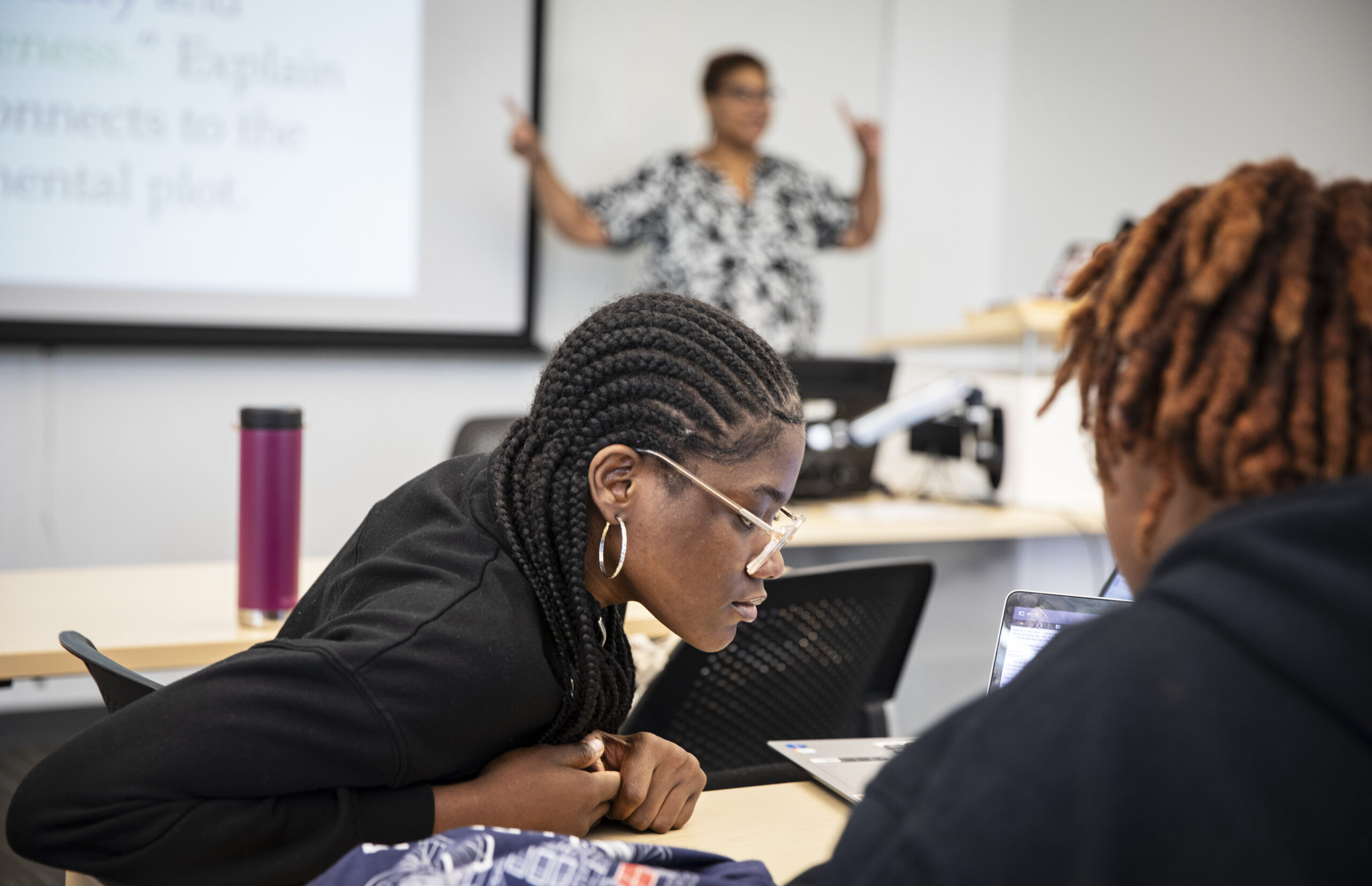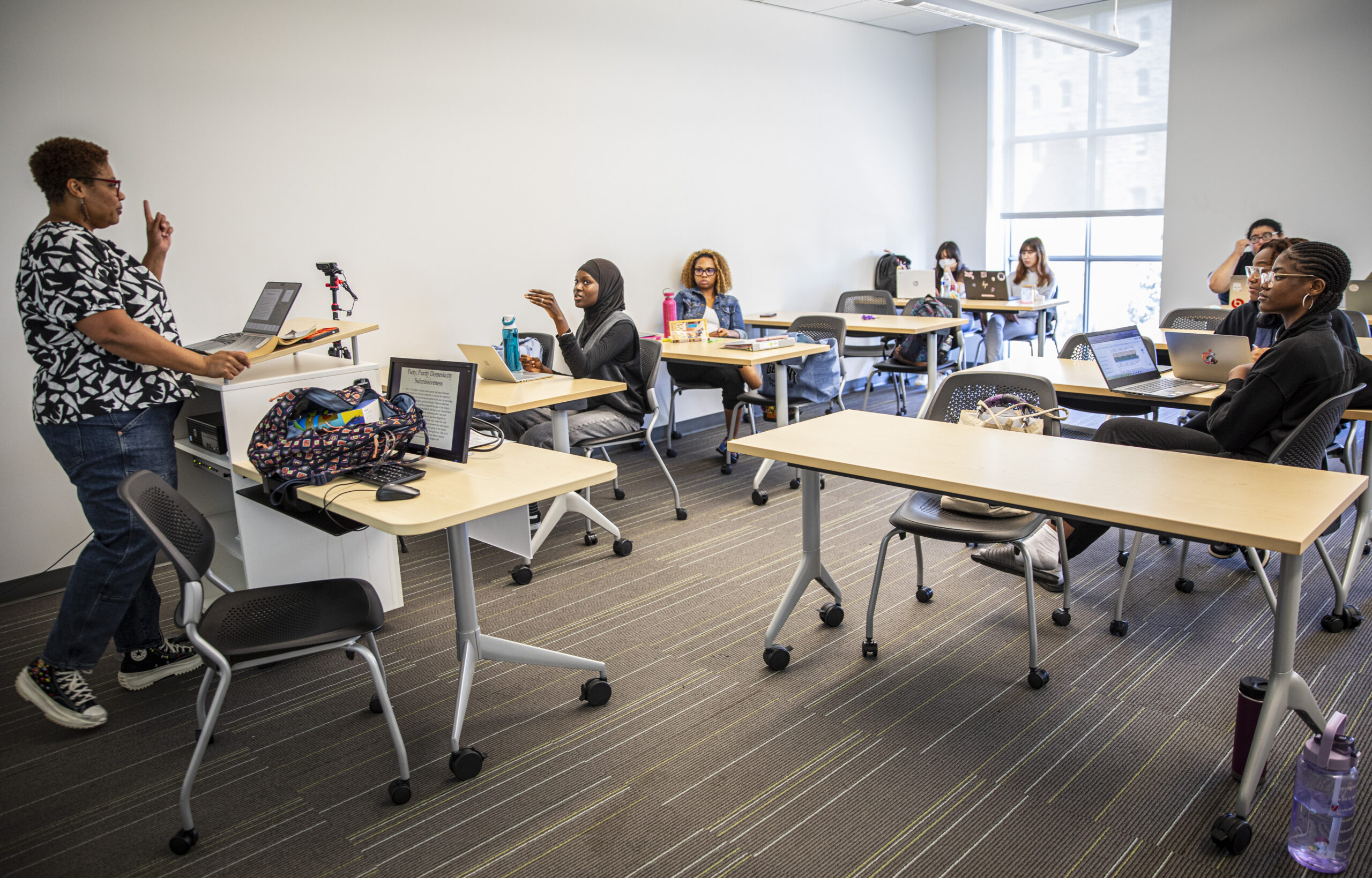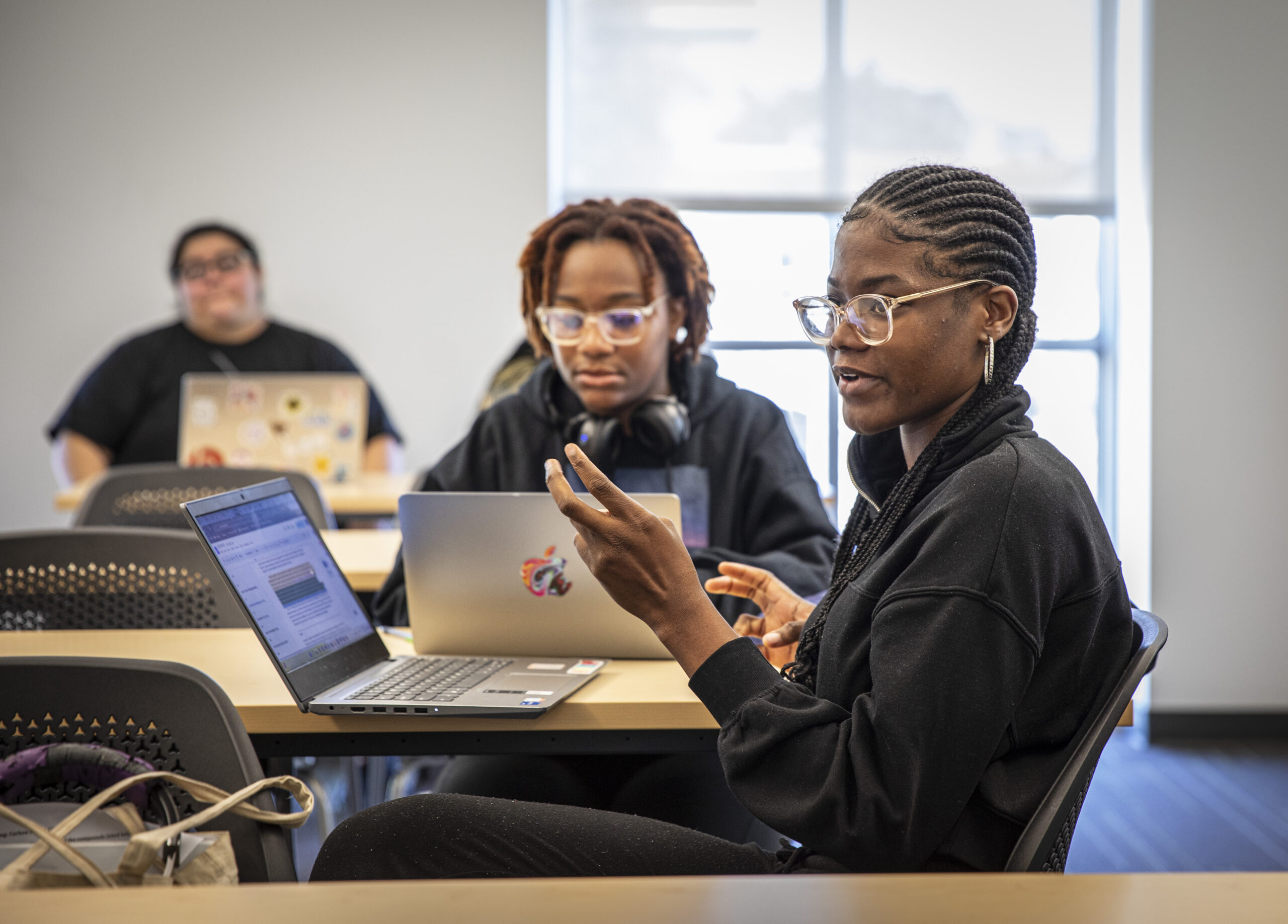
By Stephanie Thomas-Foo
Trinity Times Correspondent
In an increasingly globalized world, universities have become melting pots of cultures, ideas and perspectives, and with international students from a range of countries – such as Botswana, Brazil, Canada, Ethiopia, India, and Pakistan – officials at Trinity Washington University see the diversity enriching all students.
However, this also presents unique challenges, especially for the foreign college students navigating an American university.
“They supported me a lot,” said Masresha Burako, a first-year student from Ethiopia, about administration officials at Trinity. “From the beginning of the process all the way to financial aid. They even offered an academic advisor.”
There are between 25 and 30 international students currently enrolled at Trinity with the special F-1 Student Visa immigration status designated for non-U.S. citizens seeking a degree at an American University, said Hanan Adnan, Trinity’s international student advisor.
These students often face linguistic, cultural, and social barriers that can impede their academic success and overall well-being, Adnan told Trinity Times.
However, with the right support systems in place, universities can create an inclusive environment that nurtures the growth and success of their foreign student population, she said.
Wubitu Desta came to the United States from Ethiopia in 2016 and had four years in the country to acclimate before she enrolled at Trinity in 2020.
“I did not receive much support as a foreign student,” said Desta, a senior majoring in Health Services. “Although there are supporting methods available, they did not apply to me.”
She speaks English fluently and while language barriers may be the biggest issue foreign students face in college, it was not one of hers.
Nigerian-born Millicent Okoro came to the United States in 2020 and completed three years of high school in Arlington, Virginia, before enrolling at Trinity in 2023, giving the 19-year-old sophomore time to experience cultural shock and adjust to the country’s education system, making her transition into college less stressful.
Trinity Washington University offers a wide variety of support for international students with services including student success advisors, one-on-one peer tutoring, disability services and student affairs.
Okoro recalls witnessing other students from foreign countries having a tough time because of the language barrier, a strife she said she overcame in her senior year in high school.
Though she is now aware of the support offered to her fellow international students, it wasn’t obvious when she enrolled in the university.

“I didn’t think the information was made available, but I did see that aid is available in terms of support like the international association, but it was not really run properly, and people felt displaced,” said Okoro, who is serving as president of Trinity’s International Students Association. “People who needed translators turned to students instead of Trinity.”
The transition to a new academic and cultural environment can be overwhelming for foreign students. Universities can ease this transition by offering comprehensive orientation programs that address not only academic requirements but also cultural norms, campus resources, and support services.
The Student Success Center is a one-stop shop for finding helpful transition programs, Desta said.
“They provide practical information on topics such as housing, healthcare, transportation, and legal matters,” she said, “tailored specifically to the needs of foreign students.”
In a national study conducted by the Institute for International Education, international students make up more than 30% of enrollment at top universities and in some cases more than 40% of the total admission.
Though there are several programs in place to support foreign students at Trinity – including English as a Second Language (ESL) courses – Desta’s advice for other international students is to take advantage of the kinds of programs on campus that ease the transition of being in an American school.
In addition to ESL courses, foreign students can take advantage of Trinity’s Writing Center, and other tutoring services.
Mentorship programs where international students can receive guidance from faculty or senior peers can also help them navigate academic expectations and requirements, Desta said.
During Burako’s first-year students’ orientation, an advisor was appointed to help new students navigate academic plans and support networks.
“They are helping me complete the FAFSA (Free Application for Federal Student Aid) form,” she told Trinity Times. “I told them my background and they encouraged me to continue my education and gave me credits from my home country degree so that I came in with credit hours. They are helping me find grants that are tailored to me.”
Financial constraints often pose significant challenges for foreign students pursuing higher education abroad.
Trinity recognizes this gap and has partnered with outside agencies to offer scholarships, grants, or work-study opportunities specifically reserved for international students.
Keesha Blythe – an adjunct professor in Trinity’s School of Education – noted that by “implementing comprehensive support systems, universities empower foreign college students to thrive academically, socially and personally during their educational journey.”
Desta has felt that support during her time at Trinity.
“My biggest challenge in college so far has been paying for tuition,” she said. “Living in Maryland, I am not eligible for D.C. scholarships in addition to my financial aid. I had to pay for the classes I took. However, the school offered payment plan options to give me more time to pay off my tuition.”
While certainly a daunting hurdle, finances are only one of several challenges foreign-born students face.
Navigating visa regulations and residency permits can be time-consuming and overwhelming. Campus advising staff regularly assist students with immigration-related matters, Adnan said.
Finding suitable housing accommodations in a new country can also be a significant hurdle. Trinity does offer on-campus housing options specifically for international students, and for those who choose to live off-campus, help in finding housing options is available.
Creating welcoming and inclusive communities is a vital ingredient in student adjustment, according to leaders of Trinity’s Butterfly Network, a student group charged with fostering visibility for the undocumented community at the university.

Blythe told Trinity Times she understands the challenges faced by international students and does her best to accommodate them in a fair and compassionate way, such as allowing her students to record virtual classes, so they have more time to review and understand the material, and not automatically deducting points for grammar slips.
“Disability services provide not only support to our students but a protection that is backed by laws,” Blythe said, adding that while there are not any laws that implicitly protect international students from adjusting to the challenges faced while pursuing higher education, there are diversity and inclusion laws that do apply.
“There are many challenges that international students face, but managing academic expectations and learning styles is one of the most prevalent,” Adnan said.
She noted that by embracing diversity and providing equitable access to resources and opportunities, universities like Trinity are helping make the “foreign” experience feel a little more like home away from home.